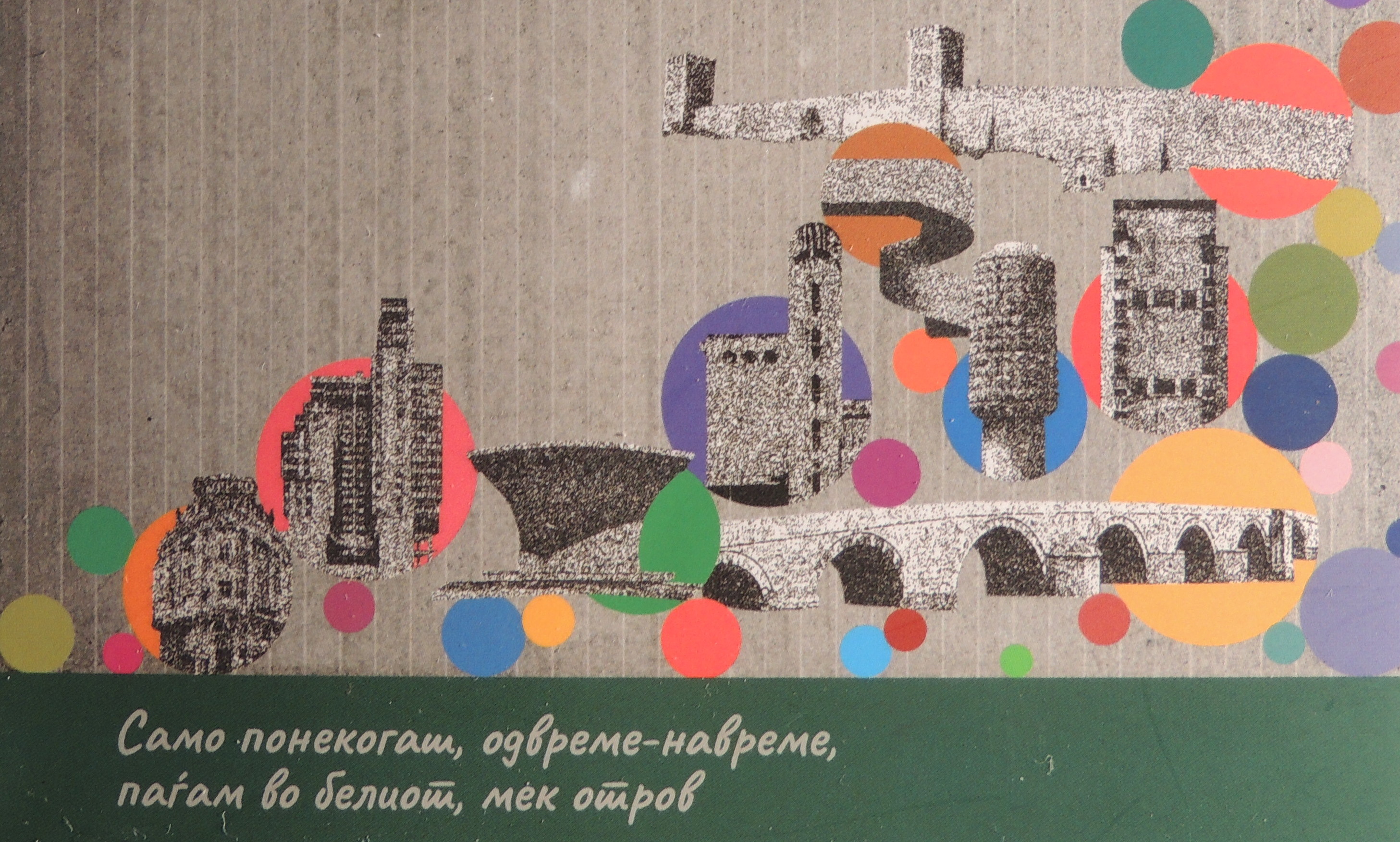ISSUES:
Independent and Non-Profit Organisation:
Center for Peace and Democracy: Ian Collins
ISSN1409-8709



.jpg)


International Editorial Board

Mirjana Maleska
Ss. Cyril and Methodius University in Skopje
email: m.maleska@seeu.edu.mk
Dr. Mirjana Maleska is a Professor at the Doctoral School of Political Science, University :Ss. Cyril and Methodius”, Skopje. She was long time Senior Fellow Researcher at the Institute for Sociological and Political Research, Skopje. From 2001 to 2012 she was a Full Professor of Political Science at the Southeast European University in Tetovo. Her specialties are political system, political parties and ethnic politics. She is the author or editor of a number of books and numerous articles: ‘Ethnic Conflict and Accommodation’(1997); ‘Macedonian Old-New Issues’(BAN, 2001); ‘What kind of a political system did Macedonia get after the Ohrid Framework Agreement’(2005); ‘Painful Confrontation: Causes and consequences of 2001 deadly conflict’(BAN, 2002); ‘Power-Sharing-A new model of decision-making in the municipalities in Macedonia’(2007);‘Interethnic relations in Macedonia’ in ‘People Centered Analyses’ (2010); Professor Maleska is founder and editor-in chief of New Balkan Politics.

Adrian Guelke
email: a.guelke@qub.ac.uk
Adrian Guelke is Professor Emeritus fromQueen's University of Belfast. Prof. Guelke’s principal interest is in the politics of deeply divided societies, most particularly the cases of South Africa and Northern Ireland. He has an especial interest in comparison of deeply divided societies and any role that comparison has played in their politics. In the past he has done a considerable amount of work on political violence both in deeply divided societies and more widely. This led him to carry out a study of terrorism, a subject that also fits into his interest in the international dimensions of internal conflicts, crossing the boundaries between International Relations and Comparative Politics. He is the editor of “Democracy and Ethnic Conflict: Advancing Peace in Deeply Divided Societies” (Palgrave, Macmillan 2004) and “The Challenges of Ethno-Nationalism: Case studies in Identity Politics” (Palgrave, Macmillan, 2010) and author of “Politics in Deeply Divided Societies (Polity, 2012). “A distinguished expert in deeply divided societies, Guelke skillfully unpacks the challenges facing societies divided by ethnicity, religion and race and tackles the critical dilemmas encountered by those seeking to design durable conflict-mitigating institutions. Politics in Deeply Divided Societies will stimulate current scholarship and nurture the next generation of students” (Neophytos G. Loizides, University of Kent).
.jpg)
Nikolai Genov
email: nikolai.genov@fuds.si
Dr. sc. Nikolai Genov is Professor Emeritus from the Free University Berlin and Head of the Institute of Global and Regional Development at the School of Advanced Social Studies, Slovenia. Research fields: global trends, societal transformations, risk research, interethnic relations, international migration. Recent book publications: “Global Trends in Eastern Europe” (Ashgate, 2010); “Trans-Boundary Migration in the Post-Soviet Space” (co-ed., Peter Lang, 2011) and “Global Trends and Regional Development” (ed.,NY, Routledge, 2012).

Dennis Blease
Mr. Dennis Blease is currently a part-time researcher and doctoral candidate with Cranfield University undertaking research into NATO’s role in Security Sector Reform (SSR) engagements. He joined the University in 2008 having retired from the British Army as a Brigadier General. During his time in service he spent a total of 9 years working with NATO. As Commander of NATO’s mission in the Republic of Macedonia (2004-2005), he advised the Government on post-conflict reconstruction programs and SSR. This role was expanded to the regional level when he was appointed NATO’s lead on SSR matters for the Western Balkans (2006-2008). He has lectured on SSR and NATO at a number of universities and security institutes throughout Europe, as well as in Palestine and Ethiopia. He is also Senior Security & Justice Advisor for the UK's Stabilization Unit, and a senior SSR associate with the Geneva-based International Security Sector Advisory Team (ISSAT).

Constantin Danopoulos
San Hosé State University, USA
email: Constantine.Danopoulos@sjsu.edu
Professor Constantine Danopoulos' specialties are comparative politics and international relations. He is the author or editor of a number of books and numerous articles. Professor Danopoulos served as the editor of the Journal of Political and Military Sociology and as president/chair of the Research Committee on Armed Forces of Society of the International Political Science Association. He is the author of ‘Warriors and Politicians in Modern Greece’ (1984). He published also: The Military and its Role in Albania’s ‘Democratization’’ (with Konstantinos S. Skandalis), Armed Forces and Society (2011), ‘Migrant Labor and its Implications on a Small State: Contemporary Greece’ (with K. S. Skandalis and P. Liargovas), Journal of the Hellenic Diaspora (2008); ‘The Military as a Distinct Ethnic or Quasi-Ethnic Identity in Developing Countries’’ (with Daniel Zirker and Alan Simpson), Armed Forces and Society (2008).

Charles Kupchan
Dr. Charles Kupchan is Professor of International Affairs in the School of Foreign Service and Government Department at Georgetown University. He is also Withney H. Shepardson Senior Fellow at the Council on Foreign Relations. He was Director for European Affairs on the National Security Council during the first Clinton administration. Before joining the NSC, he worked in the U.S. Department of State on the Policy Planning Staff. Prior to government service, he was an Assistant Professor of Politics at Princeton University.He is the author of No One’s World: The West, the Rising Rest, and the Coming Global Turn (2012), How Enemies Become Friends: The Sources of Stable Peace (2010), The End of the America Era: U.S. Foreign Policy and the Geopolitics of the Twenty-first Century (2002), Power in Transition: The Peaceful Change of International Order (2001), Civic Engagement in the Atlantic Community (1999), Atlantic Security: Contending Visions (1998), Nationalism and Nationalities in the New Europe (1995), The Vulnerability of Empire (1994), The Persian Gulf and the West (1987), and numerous articles on international and strategic affairs.

Pal Tamas
Dr. Pal Tamas is a Senior Research Fellow at the Department of Research on Knowledge, Values and Culture at the Hungarian Academy of Sciences in Budapest, Hungary. Research areas: Knowledge based society, information society, elite, strategic research, political sociology, geopolitics, Russia, CIS research, Kazakhstan, future views of Hungary, environment, vulnerability, radicalism. Recent publications: “Broken modernization in Central Europe after 1918. The Jewish Answer”, Studia Baltica, 2012, pp. 70-84;“Antidemocratic views and Ethnic animosity in the Hungarian Public opinion: Anti-Semitism as Indicator of political radicalism”, In: Guesnet Francois - Jones Gwen (ed.) Antisemitisn in Poland and Hungary, London: Routledge, 2012. pp. 270-290; “The radical right in Hungary: A threat to democracy?” In: Langenbacher N, Schellenberg B (ed.) Is Europe on the „right” path? Berlin: FES, 2011.

Lidija Petkovska - Hristova
email: lidija@isppi.ukim.edu.mk
Lidija Hristova is Full professor of Political science and Head of the Department of Political science at the Institute for sociological, political and juridical research, Ss. Cyril and Methodius University, Skopje. Her research interest includes political parties, party identities and democratization of the post-communist countries, as well as the study of interest groups, trade unions and collective bargaining. She is the leading researcher of the empirical research study titled Political identities in the R. Macedonia, University Ss. Cyril and Methodius Press, Skopje 2011, which examines the political identities of the main political parties in the R. Macedonia, as well as political and value orientations of the citizens and their dependence from political party preferences.

Miodrag Zivanovic
Dr.Miodrag Zivanovic is a Professor of Philosophy at the Faculty of Philosophy in Banja Luka, Bosnia and Herzegovina. He is one of those rare intellectuals from Bosnia and Herzegovina, who bravely opposes nationalism and further division of BiH. Prof. Zivanovic is founder and the leader of Democratic alternative of BiH and initiator of numerous democratic initiatives; member of international PEN organization; the president of the permanent committee for humanism; member of the expert group for North-Atlantic integration; founder and editor of the journal Helios etc. He is the author of numerous essays and books, like: ‘Blue lectures’(1999), ‘Acta Politica Sebrica(2000), ‘Blue and ultra-violet’(2000), ‘The Letter of Nostalgia’(2002), ‘The producers of miracles’(2003).

Stephan E. Nikolov
email: snikolov@hrc-bg.com
Stephan E. Nikolov is a Senior Fellow researcher at the Bulgarian Academy of Science, Institute of Sociology and Assistant Professorat the Neofit Rilski Southwestern University Blagoevgrad(Dept. of Law and History) .He is also Editor-in-Chief of the Bulgarian “Sociological Review.”
His last work is “Perceptions ofEthnicity in the Bulgarian Political Culture: Misunderstanding and Distortion - Chapter VII in The Macedonian Question: Culture, Historiography, Politics. Ed. by VictorRoudometof, 2000, Boulder, CO: East European Monographs, NY: Columbia University Press, pp. 207-235. In Search of“Bigfoot”: Competing Identities of the Pirin Macedonia, Bulgaria, co-authors Bonka Stoyanova - Boneva and Victor Roudometof - Chapter VIII in The Macedonian Question: Culture, Historiography, Politics. Ed. by VictorRoudometof, forthcoming, 2000, Boulder, CO: East European Monographs, NY: Columbia University Press, pp. 237-258.

Jan Muś
Jan Muś works as senior analyst at the Institute of Central Europe in Lublin. His previous work experience includes cooperation with a number of research institutes and universities
across Europe, including University of Rijeka, University of Cologne, University of Helsinki, Southeast European University in Macedonia and St. Climent Ohridski Univeristy in Sofia.
Member of various professional Polish and international organisations and associations. His research interests include such questions as political developments in the Western Balkans, the EU enlargement policy, international relations and peripherisation. Jan authored several publications concerning mostly the Southeastern Europe and external expertise for public institutions in Poland. He has been an employee of the Department of Strategy and Analysis of the Office of the Committee for European Integration (UKIE). He has also worked as the Balkan-desk officer for the Center for Eastern Studies (OSW) at the Chancellery of Prime Minister in Poland.

Aneta Cekik
email: aneta@isppi.ukim.edu.mk
Dr. Aneta Cekik is Associate professor of Political science at the Political science department of the Institute for sociological, political and juridical research, Ss. Cyril and Methodius University, Skopje. Her research interest includes interest groups politics, EU lobbying and ethnic conflicts study. She is Scientific Secretary of “New Balkan Politics”
PUBLISHER'S SUPERVISORY BOARD

Kiril Temkov
Dr. Kiril Temkov is a full professor of Ethics and Esthetics at the Faculty of Philosophy, University “Ss. Cyril and Methodius”, Skopje. One of the best educator in the country, he devoted all of his time and strength to promote the necessity of education of ethics in schools and at the University. He led Esthetic Laboratory at the Faculty of Philosophy(1971-1994) and was founder of the ‘Open Theater University’, ‘Young Open Theatre’ and ‘Skopje’ and Summer festival” .He is, among other books and papers, author of :”Ethics”(1998), “Ethics today”(1999). Dr. Temkov is a Founder and Editor of “Ethic’s papers”.

Marija Korobar-Belceva
Dr. Marija Korobar-Belceva is a very well known linguist, specialist in Macedonian language and onomastics. She was a long time Senor Fellow Researcher at the Institute of Macedonian Language and Literature “Krste Petkov Misirkov” and professor at post-doctoral studies. Dr Korobar was a founder and director of the journal “Macedonian Language”. She is one of the authors of the “Dictoinary of Onomastic s”, “Dictionary of the names and surnames in Macedonian popular stories and poetry”. She is the author of “Macedonia” in the World Dictionary of Onomastics”

Nazmi Maliqi
Associate Prof. Nazmi Malici is Vice dean of the Faculty of Political Science and International Relations at the FON University- Skopje. His main scientific interest concerns political tolerance, integration to the European Union and international relations and organizations. He was one of the founders of the Party for democratic prosperity and held several political functions in the period 1993-1998. Previously he was a professor of Southeast European University in Tetovo. Dr. Malici regularly comment political events in the country in the newspapers in Macedonian and Albanian language.
LANGUAGE REDACTION AND TRANSLATION

Kalina M.Gegaj
Faculty of Philology,“Ss. Cyril and Methodius” University Skopje.
Dr. Kalina M.Gegaj is Assistant Professor of Literature, Department of English Language and Literature “Blaze Koneski” Faculty of Philology,“Ss. Cyril and Methodius” University Skopje. Teaching courses in English Literature. Previous experience: Teaching Assistant of Literature is in New York University Skopje;Eupol Proxima PPIO, Skopje Media Analyst; Press/Informatio Office of EU task force “Concordia”, Media assistant and interpreter; NATO APIC, Skoje, Interpreter, media monitoring; Journalist, Makedonija Denes daily and Denes weekly Covering issues related to foreign affairs. Published authorial works of Kalina M.Gegaj: Reexamining the Relation between Literary and Historical Discourse”, presentation at the “English Language and Literature Studies: Embracing Edges” conference, Faculty of Philology, Belgrade, December 2012.
“Alternative View on the Relationship between Literature and Politics”, literary essay in Voicing the Alternative, collection of conference proceedings. Niksic: Faculty of Philosophy, 2012. Pp. 157-164. “Literary Attempts to Evade Control over Discourse: Macedonian-English Comparative View”, literary essay in the journal Slovo (interdisciplinary journal of Russian, East-Central European and Euroasian affairs), Vol 24, No 2, 2012, published by University College London School of Slavonic and Eastern European Studies. Pp. 96-113. “Postcommunist Literature in Macedonia: Combination of the Traditional and the Contemporary”, literary essay in the international journal Word and Text: A Journal of Literary Studies and Linguistics, Vol. II, Issue 1, June 2012. Pp. 97-106

.jpg)
.jpg)
.jpg)
.jpg)
.jpg)














